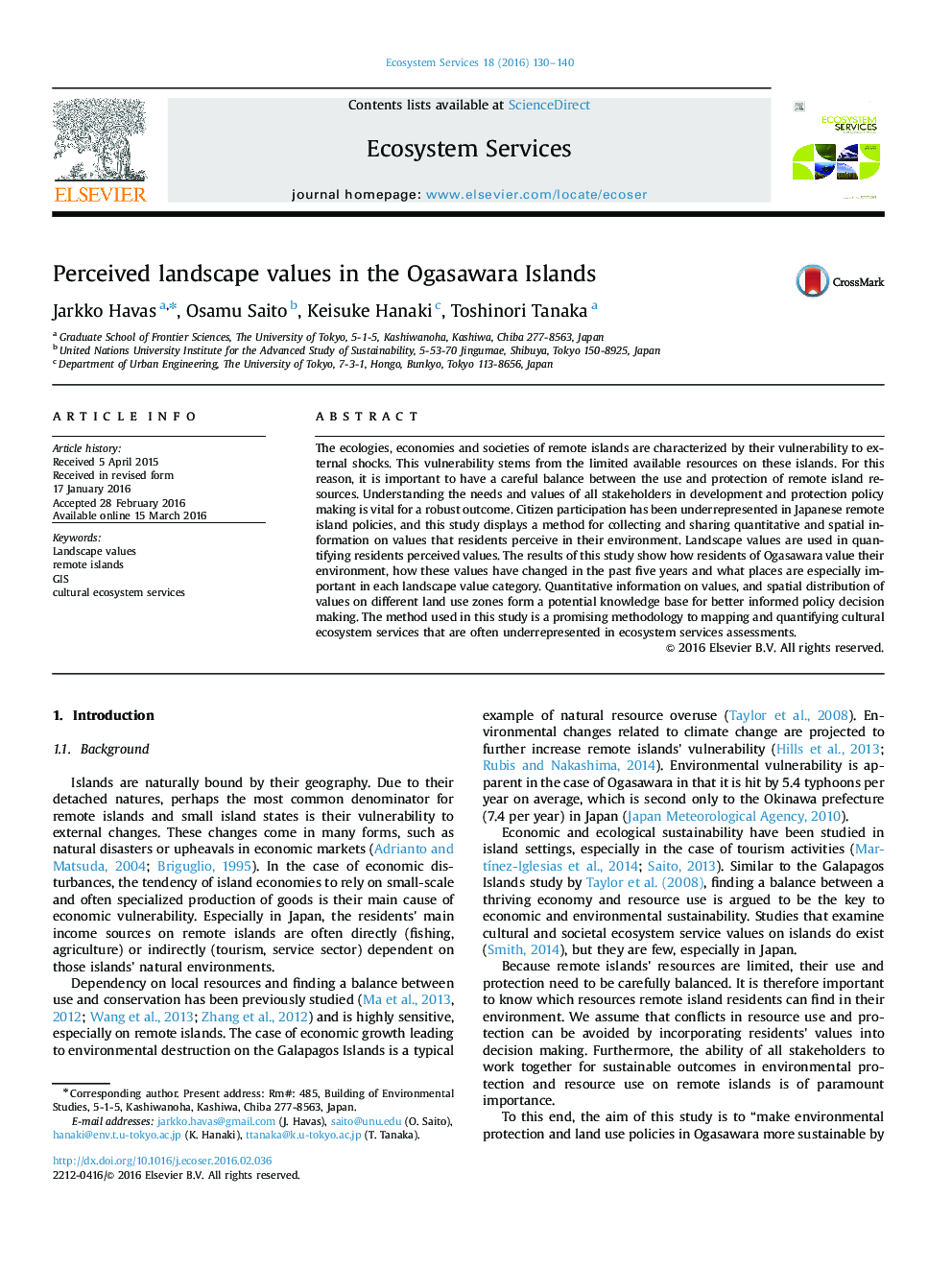| Article ID | Journal | Published Year | Pages | File Type |
|---|---|---|---|---|
| 6556589 | Ecosystem Services | 2016 | 11 Pages |
Abstract
The ecologies, economies and societies of remote islands are characterized by their vulnerability to external shocks. This vulnerability stems from the limited available resources on these islands. For this reason, it is important to have a careful balance between the use and protection of remote island resources. Understanding the needs and values of all stakeholders in development and protection policy making is vital for a robust outcome. Citizen participation has been underrepresented in Japanese remote island policies, and this study displays a method for collecting and sharing quantitative and spatial information on values that residents perceive in their environment. Landscape values are used in quantifying residents perceived values. The results of this study show how residents of Ogasawara value their environment, how these values have changed in the past five years and what places are especially important in each landscape value category. Quantitative information on values, and spatial distribution of values on different land use zones form a potential knowledge base for better informed policy decision making. The method used in this study is a promising methodology to mapping and quantifying cultural ecosystem services that are often underrepresented in ecosystem services assessments.
Related Topics
Life Sciences
Agricultural and Biological Sciences
Agricultural and Biological Sciences (General)
Authors
Jarkko Havas, Osamu Saito, Keisuke Hanaki, Toshinori Tanaka,
